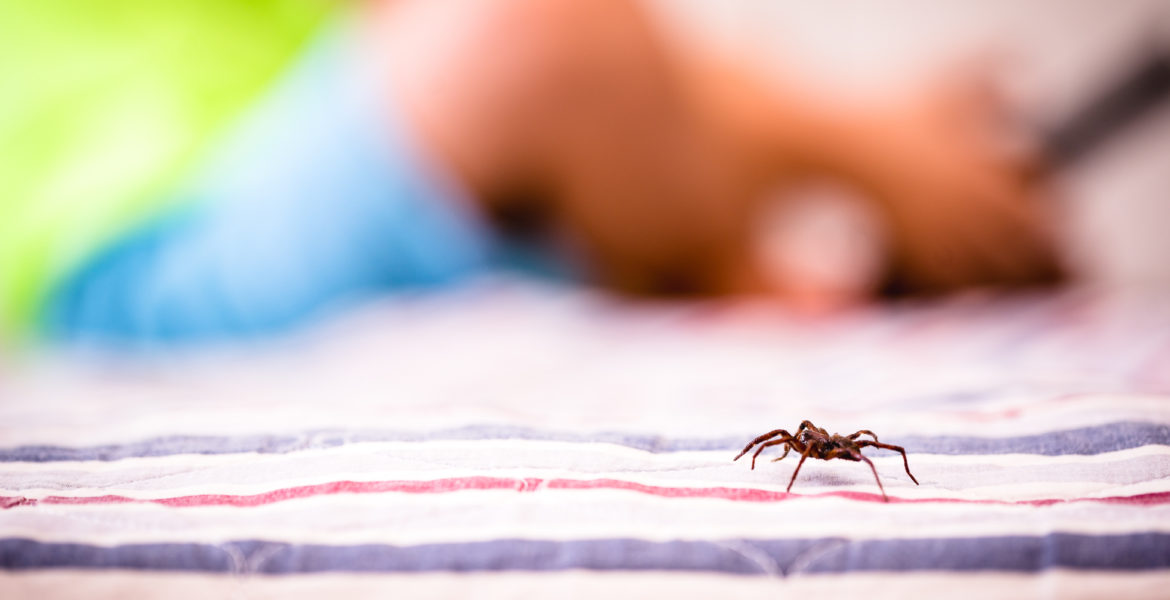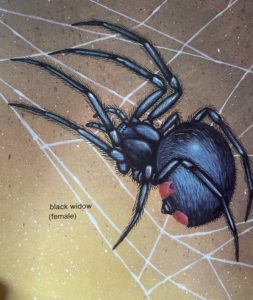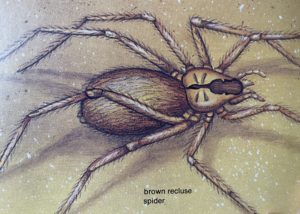
Insect bites are commonly blamed on a spider bite, but the truth is that most bites are not caused by spiders. Unlike chiggers which feast on the skin, or mosquitoes, that suck the blood, spiders do not see humans as food. They rarely bite and will usually retreat quickly to avoid an encounter with a human. If a spider does bite an individual, it is usually in self-defense. It is almost impossible to identify what type of insect caused a lesion on your child, unless you see it bite your child or slap it dead. Spider venom is adapted to kill their foods source and is rarely toxic to humans, but every individual has a different reaction to any type of bite or sting, including spider bites.
There are many types of spiders, but only two types of spiders are considered “venomous” (toxic) to humans in the United States: the Black Widow Spider and the Brown Recluse Spider.


The venom of the black widow contains a substance (neurotoxin) that can cause pain in the bite area that can also spread to the chest, abdomen, or entire body. The brown recluse venom has the potential to destroy skin and cause a severe lesion. Medical attention should be sought immediately for either of these types of spider bites. Death is rare from these spiders, but children, elderly and immunocompromised individuals are more at risk for complications.
Characteristics of spider bites, as described by the CDC, include lesions that are reddish to purplish in color, or cause blisters, itching, rash, pain, muscle cramping, increase sweating, difficulty breathing, headache, nausea, vomiting, fever, chills, anxiety, or high blood pressure.
Some individuals may have an allergic reaction to certain insect bites including spiders, which can be serious. These symptoms could include hives, intense itching, swelling and redness, sudden swelling of the lips, eyes, tongue, or throat, trouble breathing or wheezing, or loss of consciousness. Anyone experiencing these symptoms regardless of the type of bite should seek medical attention immediately.
If you or your child experiences a spider bite or suspect a spider bite, wash the lesion with soap and water, and apply a cool compress or ice for comfort. If it is itching, apply a 1% hydrocortisone cream and/or take an over-the-counter antihistamine. Seek medical attention immediately for any of the symptoms listed above or if they develop worsening symptoms at the site, such as increasing redness, swelling or discharge from the lesion.
Little Spurs Pediatric Urgent Care opened in 2006 in San Antonio, Texas. With multiple locations in San Antonio and Dallas, they are open seven days a week with extended evening hours. They accept most commercial insurance and Medicaid plans. More information about Little Spurs Pediatric Urgent Care can be found at www.littlespurspedi.com.



